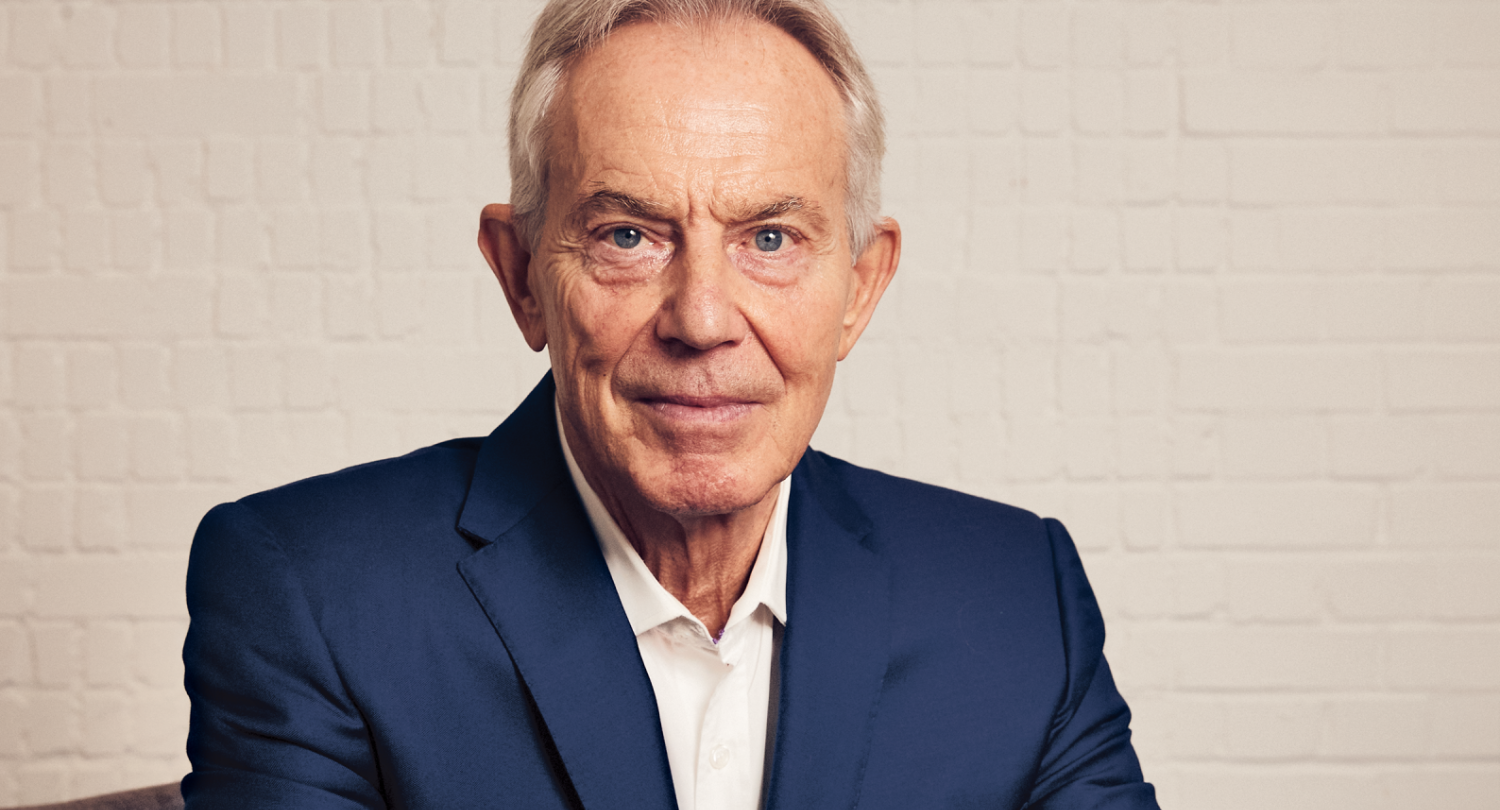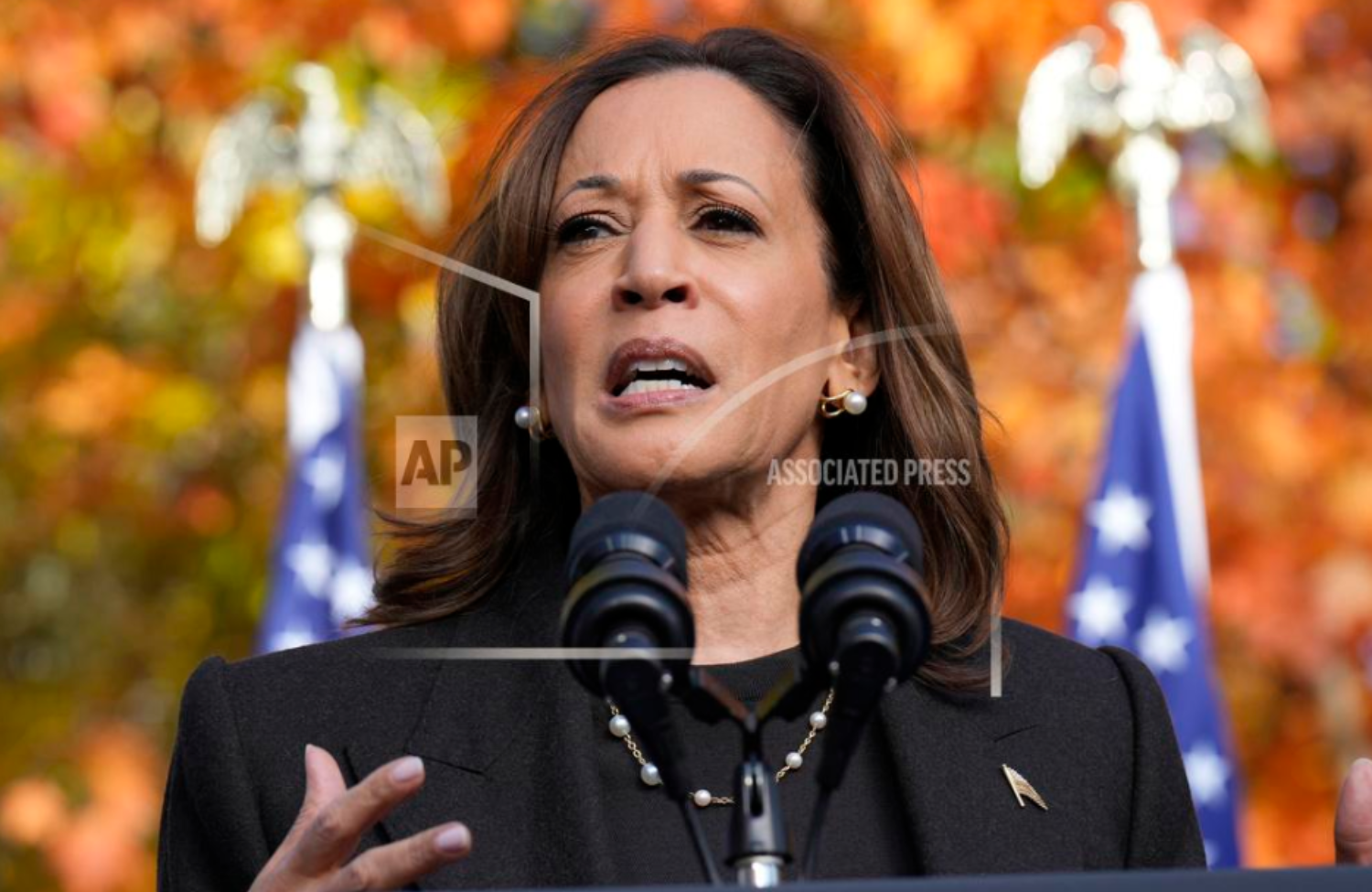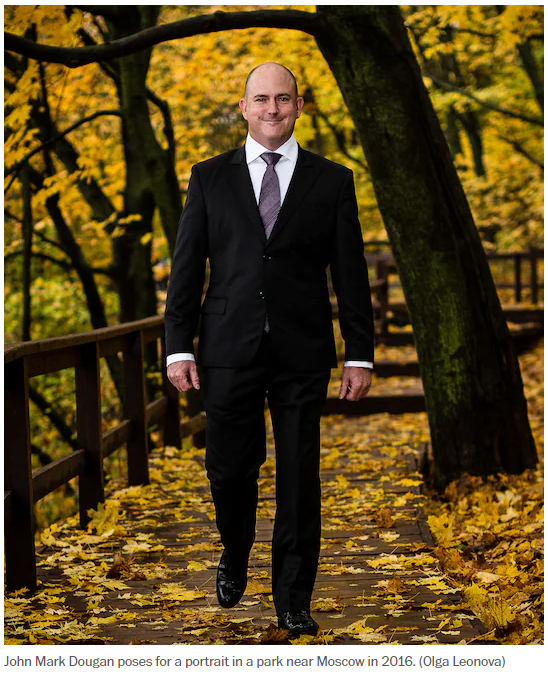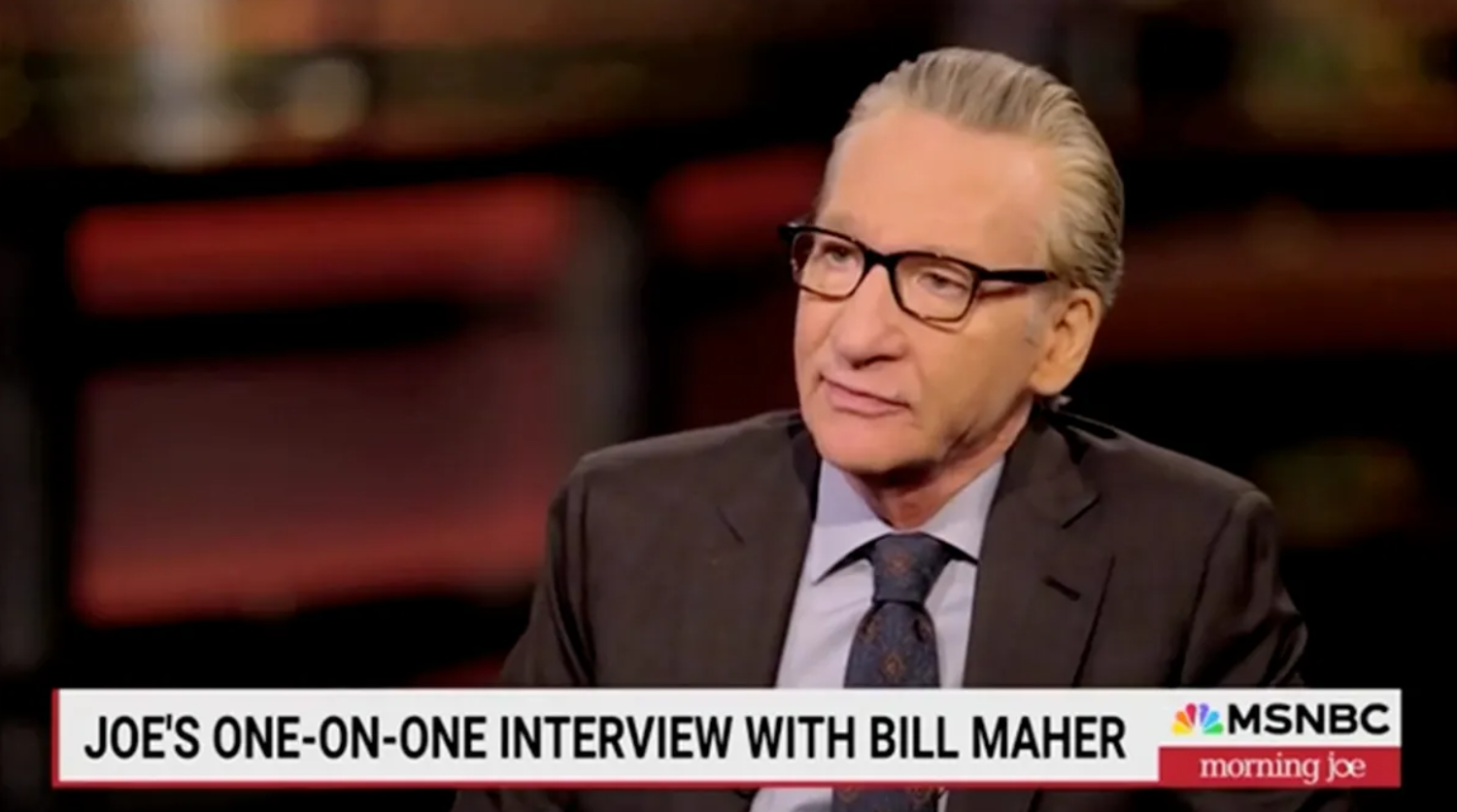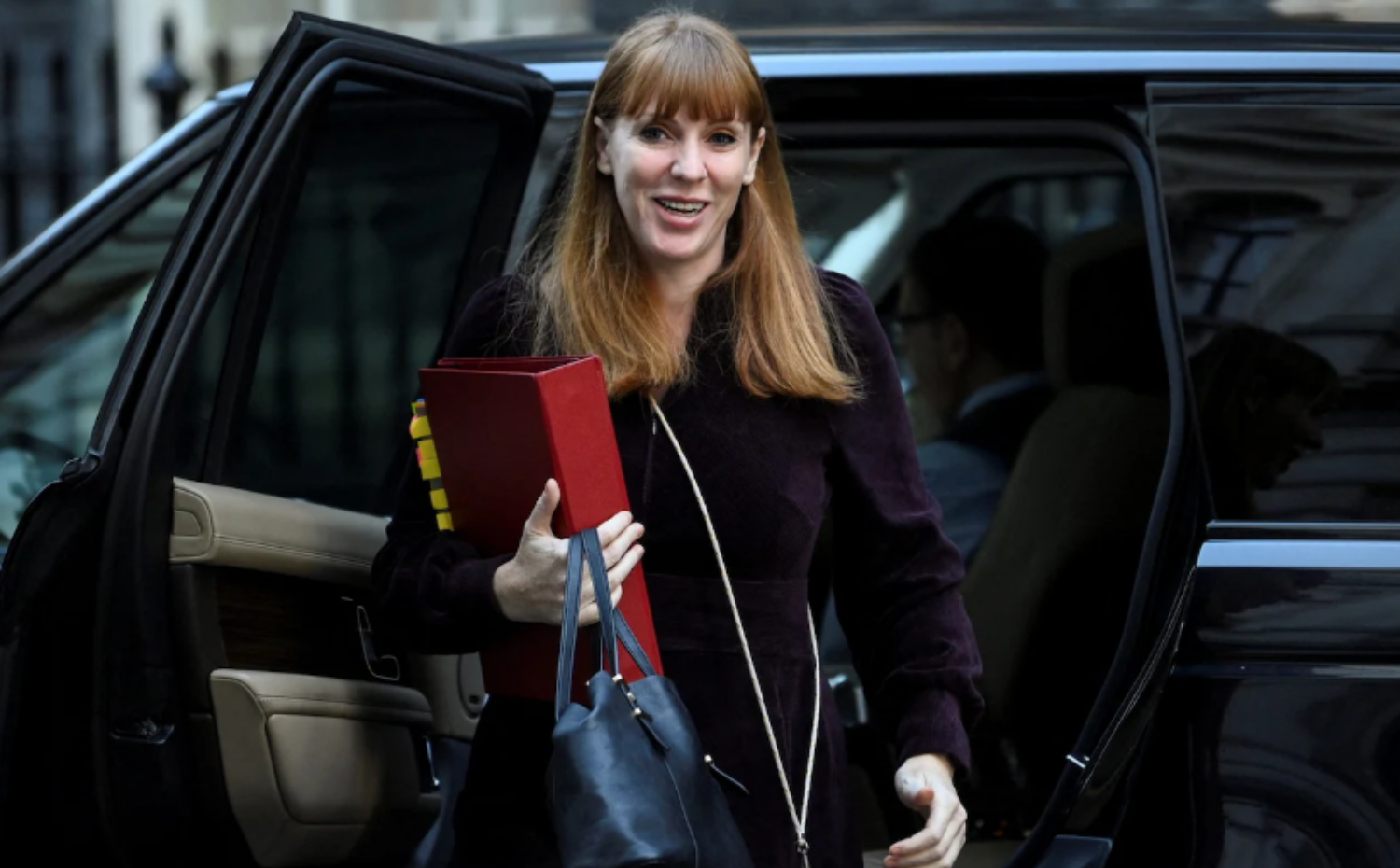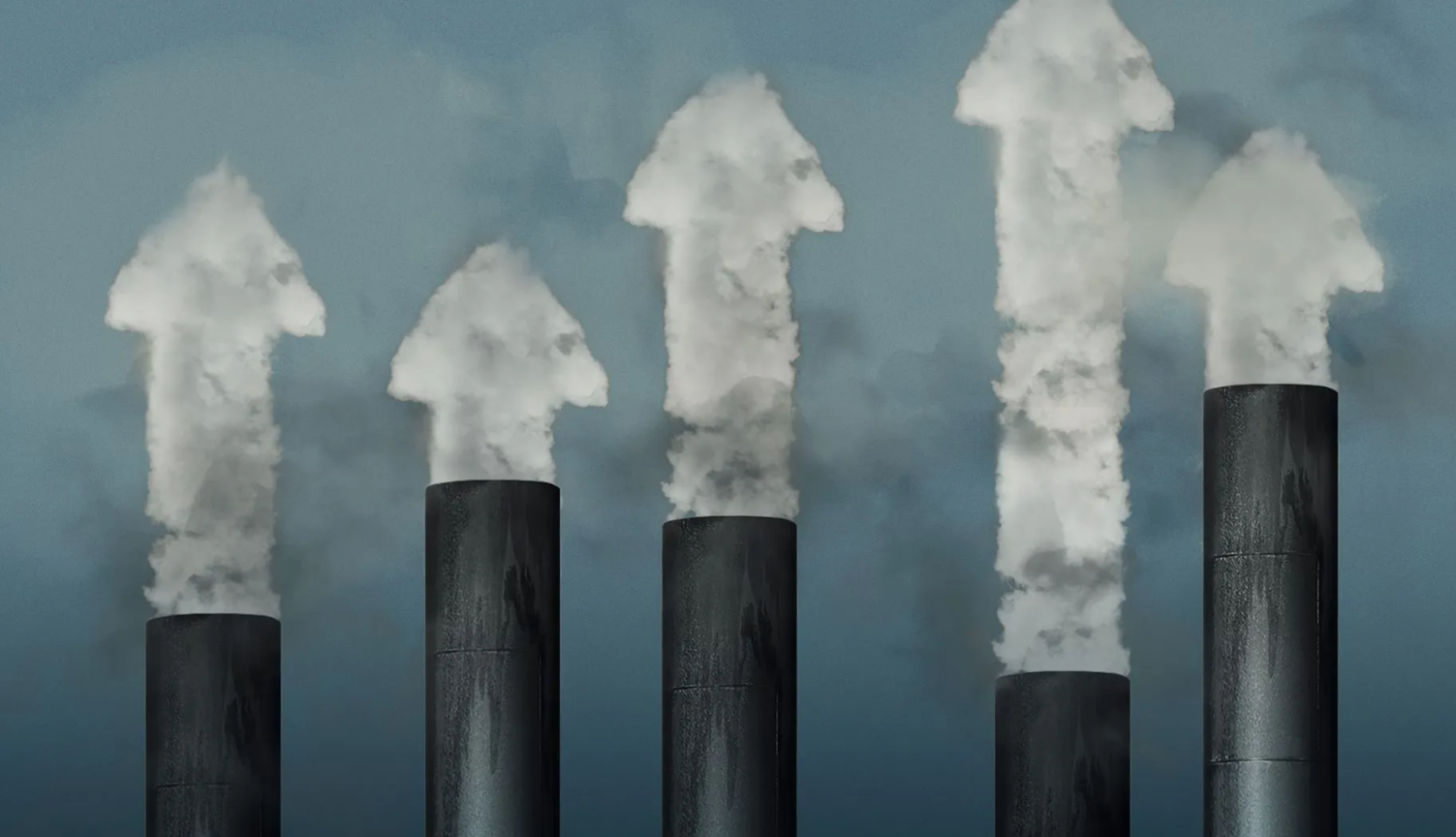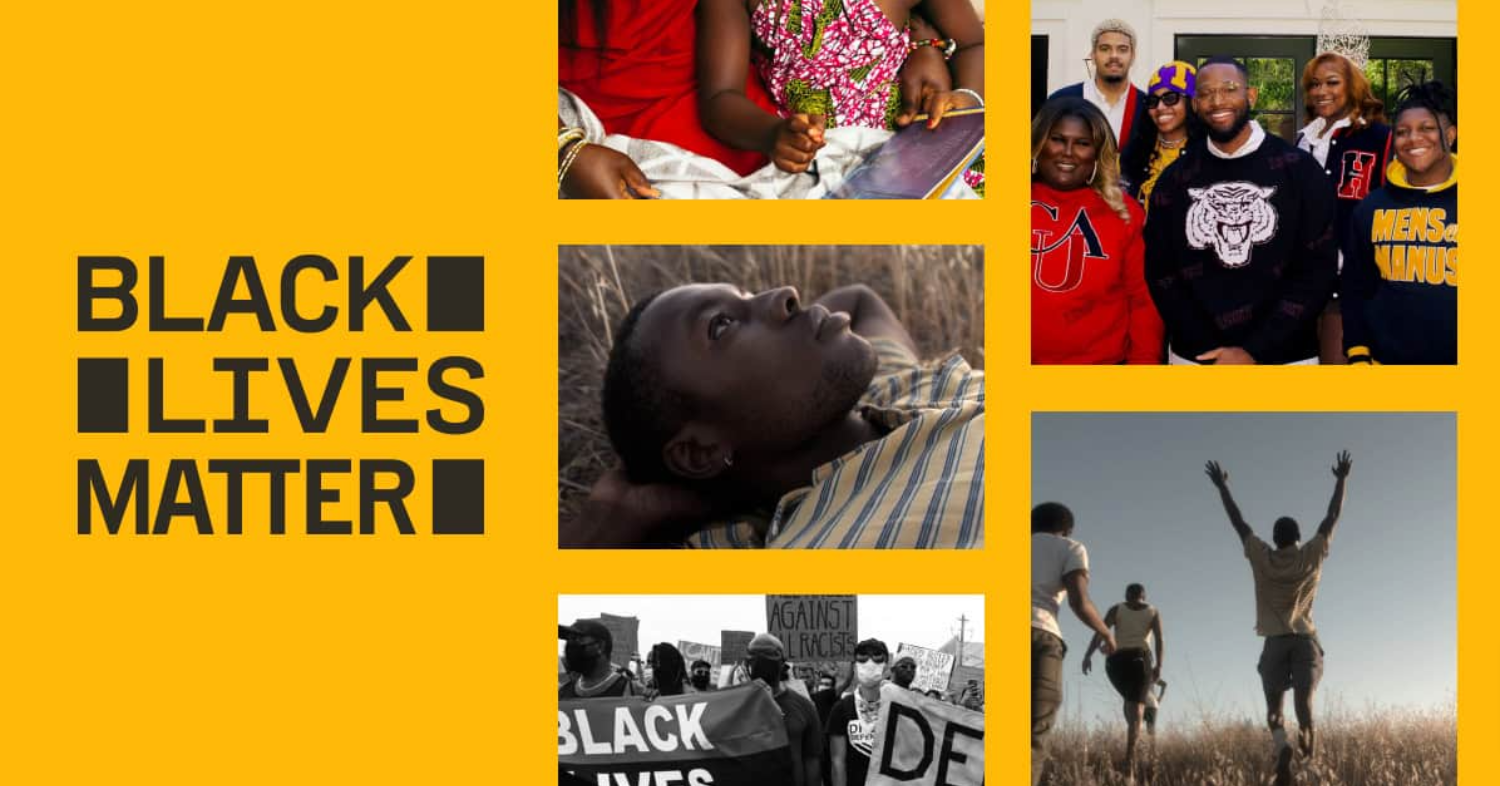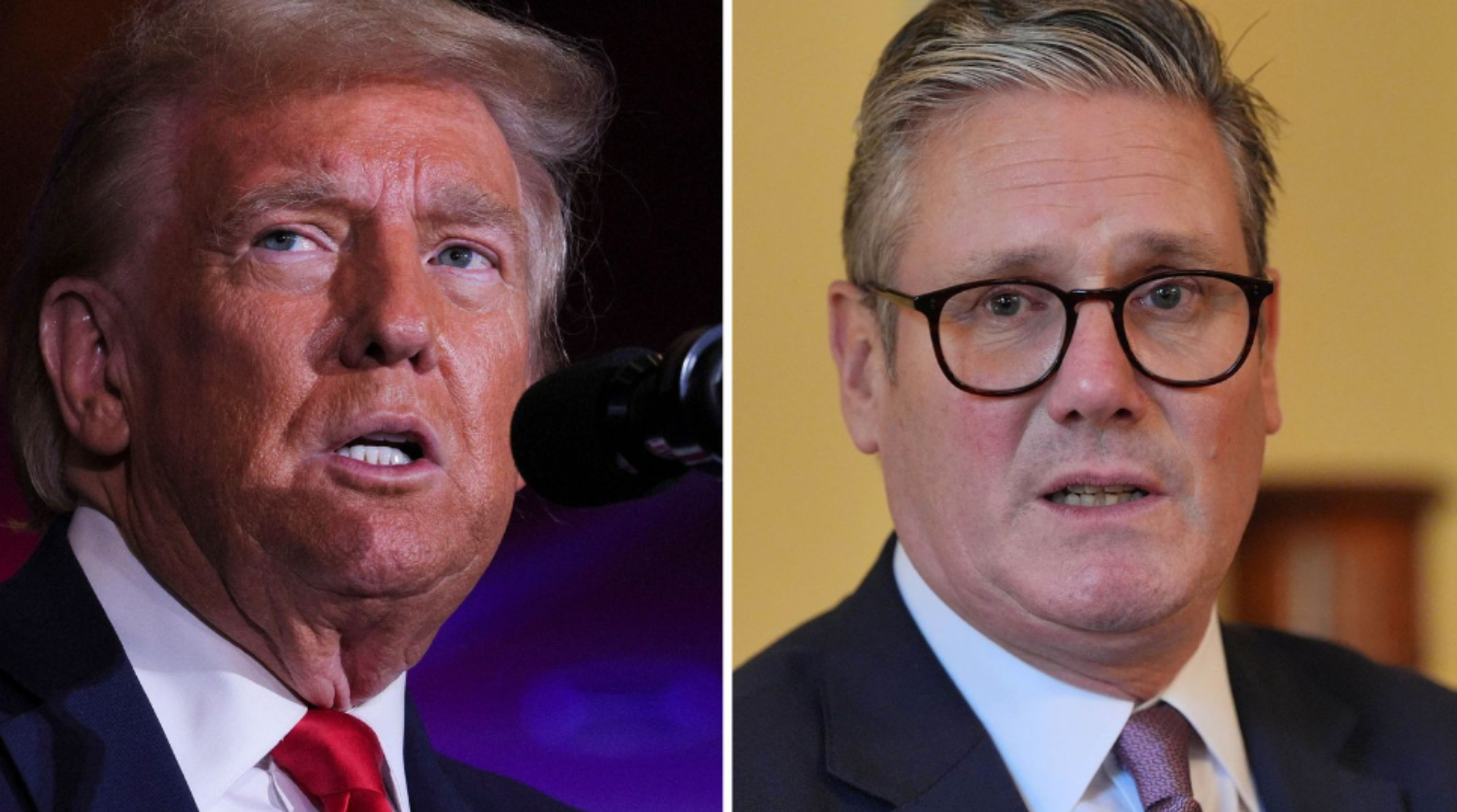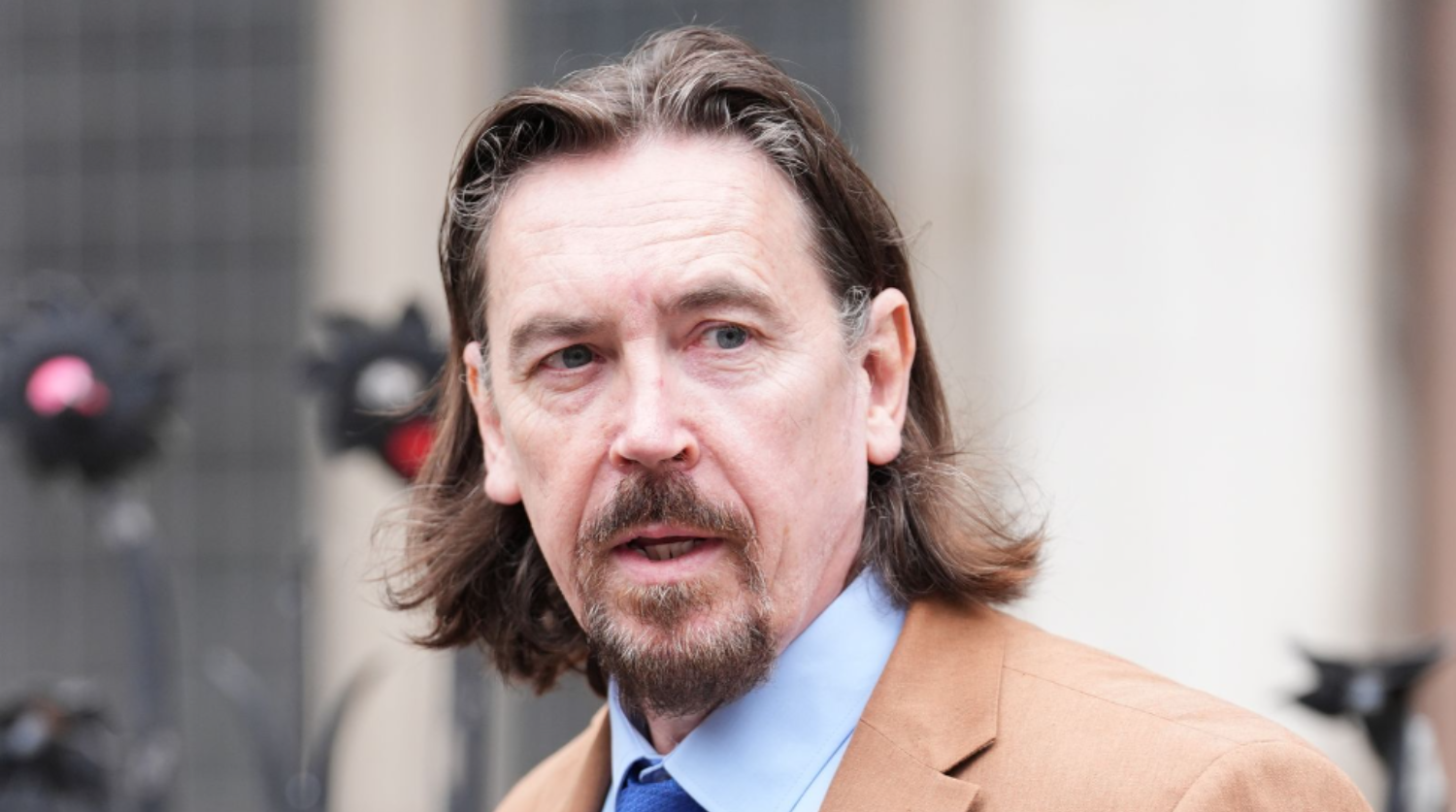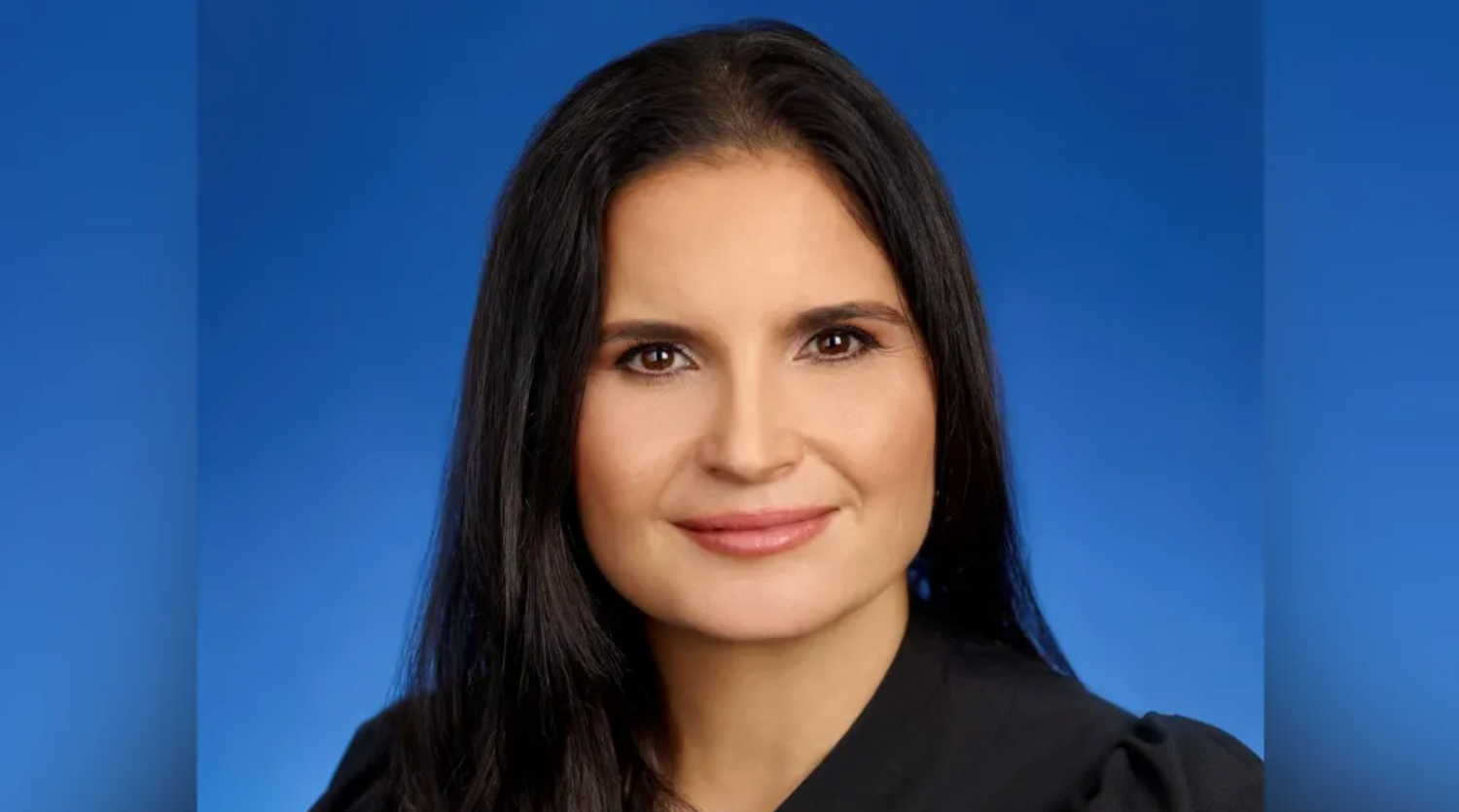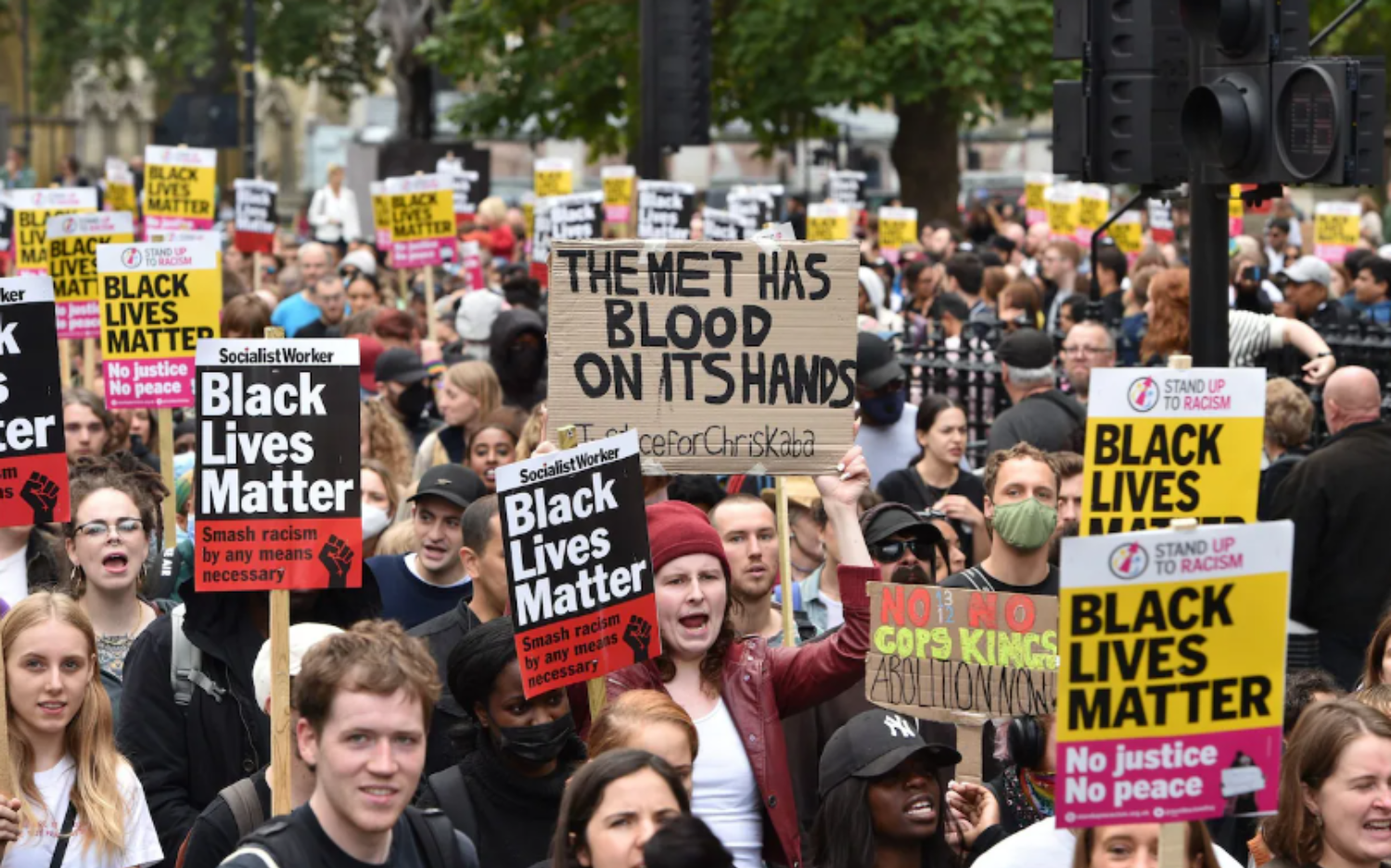-
Posts
10,094 -
Joined
-
Last visited
Content Type
Events
Forums
Downloads
Quizzes
Gallery
Blogs
Everything posted by Social Media
-
Comedian Joe Rogan released his highly-anticipated sit-down with former President Donald Trump on Friday night, just hours after they recorded it in Austin, Texas. The interview, released on “The Joe Rogan Experience” YouTube channel, is two hours and fifty-eight minutes long. It drew nearly 300,000 views less than 30 minutes after it went up. Trump begins by discussing his “two different lives,” referring to his time as a businessman and host of “The Apprentice,” and his subsequent foray into politics in 2015. Based on a report from the NYP 2024-10-26
-
Israel confirmed that had launched "precise strikes on military targets in Iran" early Saturday morning local time. The Israel Defense Forces said the strikes were in response to "months of continuous attacks" from Iran. On Oct. 1, Iran launched nearly 200 ballistic missiles at Israel. The initial strike targeted a barracks or office and a weapons depot near Tehran, two senior Arab officials told NBC News. In response to months of continuous attacks from the regime in Iran against the State of Israel—right now the Israel Defense Forces is conducting precise strikes on military targets in Iran. The regime in Iran and its proxies in the region have been relentlessly attacking Israel since October 7th—on seven fronts—including direct attacks from Iranian soil. Like every other sovereign country in the world, the State of Israel has the right and the duty to respond. Our defensive and offensive capabilities are fully mobilized. We will do whatever necessary to defend the State of Israel and the people of Israel. Based on a report from NBC | X | 2024-10-26
-
In a recent interview with *Newsweek*, former U.K. Prime Minister Sir Tony Blair underscored the threat he believes Iran poses to Middle Eastern stability, identifying the country as a major source of regional unrest. Blair, who has remained actively engaged in Middle Eastern affairs since his time in office, stated that a key priority should be ensuring that Iran never acquires nuclear weapons. He argued that Iran’s influence across the region, particularly through proxies like Hamas in Gaza and Hezbollah in Lebanon, has fueled violence and unrest. Blair's remarks come in light of Israel’s recent attacks on Hamas and Hezbollah following the tragic events of October 7, 2023, which marked the deadliest assault on Jewish people since the Holocaust. A central figure in British politics for over a decade, Blair led the Labour Party beginning in 1994 and served as the U.K. Prime Minister from 1997 to 2007. His time in office was marked by significant events, including the Iraq War, a decision that remains controversial due to the absence of weapons of mass destruction, which had been the war’s primary justification. Although Blair faced criticism for potentially misleading Parliament, Sir John Chilcot, who led a thorough inquiry into the matter, later clarified in testimony that he did not find Blair had intentionally deceived the public or Parliament with falsehoods. Among Blair’s achievements were the Good Friday Agreement, a milestone in the Northern Ireland peace process, and his leadership in humanitarian interventions in Sierra Leone and Kosovo. After his term, Blair continued to focus on international issues, serving as the special envoy for the Quartet on the Middle East, an organization comprising the United Nations, the United States, the European Union, and Russia, tasked with mediating the Israeli-Palestinian peace process. Blair held this role until 2015. In recognition of his contributions, particularly his alliance with the United States, Blair was awarded the Presidential Medal of Freedom by former President George W. Bush in 2009. Blair’s recent comments reflect his enduring commitment to a secure and stable Middle East, urging the U.S. to take definitive steps to prevent Iran from becoming a nuclear power. Based on a report from Newsweek 2024-10-26
-
The Trump campaign is expressing a cautious optimism regarding Donald Trump’s chances of winning the 2024 presidential election, fueled by encouraging early voting numbers that suggest a potential victory over Vice President Kamala Harris. Campaign officials have noted that, although it is "too early to declare victory," initial returns in key states look more promising than in both the 2016 and 2020 elections. An adviser on a campaign call stated, "Overall, both nationally and in battleground states, we are seeing strong returns for Republicans so far. From where we’re sitting right now, things look pretty good. Encouraging signs across the board. The voter registration gains in all the partisan registration states have been tremendously in our favor." The data the campaign is seeing includes an increase in registered Republican early voters in critical swing states like Arizona, North Carolina, Nevada, and Pennsylvania, where numbers are up by double digits compared to 2020. Additionally, mail-in ballots—a format often favored by Democrats—are reportedly down significantly from four years ago in Pennsylvania, and reduced by 79% in Georgia and 25% in Michigan. These numbers may indicate that Democrats are not turning out for Harris as they did for Biden in 2020. The Trump team is also seeing what they call "sustained overperformance" in states like Virginia and Ohio, although the adviser clarified, "It’s certainly too early to begin declaring victory, but it is certainly worth pointing out that our share of the early vote is turning in the right direction." Adding to the campaign’s optimism are recent national polls from both the Wall Street Journal and CNBC, which show Trump ahead of Harris in the popular vote—a benchmark Republicans have not achieved in 20 years. Despite these favorable indicators, Trump has encouraged his supporters to vote early and in record numbers to ensure the election is "too big to rig." Karoline Leavitt, Trump 2024’s national press secretary, affirmed the campaign’s momentum, saying, "President Trump continues to dominate in poll after poll, Republicans have made massive voter registration gains, and we are far outperforming in our share of the early vote relative to two or four years ago across all battleground states." She added, "Voters know that Kamala Harris has destroyed our country, but President Trump will fix it — and that is why he is well-positioned for victory on November 5." Meanwhile, signs of apprehension are emerging within the Democratic Party, as former President Barack Obama and Harris’ campaign manager Jen O’Malley Dillon acknowledge that the race will be “tight.” During an event aimed at mobilizing Black voters in Pittsburgh, Obama expressed concerns about turnout, stating, "We have yet to see the same kinds of energy and turnout in all corners of our neighborhoods and communities as we saw when I was running." This comment also hints at polling data suggesting Trump may achieve a Republican high among Black voters, potentially breaking a 64-year record. Former President Bill Clinton also shared concerns in Arizona, noting Harris is "extremely vulnerable, more vulnerable than she deserves to be." NBC News recently reported on growing fears within the Harris campaign that key states like Michigan and Wisconsin could slip away, potentially mirroring Trump’s 2016 sweep of the “Blue Wall.” Some Democrats, including party insiders, have voiced dissatisfaction with Harris’ campaign strategy. A senior party figure commented, "They are not thinking ‘Blue Wall’ at all. They are just not thinking," in response to Harris spending time in Texas, a predominantly Republican state, to discuss abortion rights instead of focusing on crucial battlegrounds. Another insider criticized her campaign’s media approach, likening it to "a first-time congressional candidate running as a sacrificial lamb." The Trump campaign's current standing, paired with rising concerns among Democrats, hints at an unpredictable but highly competitive race as the election nears. Based on a report from the NYP 2024-10-26
-
In a recent interview, GOP strategist and former Mitt Romney adviser Stuart Stevens shared a bold prediction regarding Vice President Kamala Harris’s chances in the upcoming election. Speaking with *Vanity Fair’s* Joe Hagan, Stevens praised the Harris campaign’s strategy, describing it as "the best presidential campaign ever." He expressed confidence in her potential for a decisive victory, stating, “Harris is going to win fairly comfortably. I think Harris is gonna win by a larger margin than 2020. [Republicans are] gonna say this election was rigged, and the Republican Party is going to fail again. And it’s going to be very, very ugly.” Stevens highlighted the strategic balance Harris has maintained, navigating traditional campaign topics like the economy and border policies while also addressing what he considers the unusual nature of this race. “The Harris campaign has done a balance of dealing with these issues you would deal with in a normal race — economy, border — while reminding people that this isn’t remotely a normal race,” he said. Contrasting Harris’s approach, Stevens offered a critical view of former President Trump’s campaign strategy, which he characterized as unfocused and disruptive. According to Stevens, Trump’s campaign lacks a clear vision beyond instilling fear among voters. “There is no plan except voter intimidation,” Stevens stated, adding, “It’s a very chaotic campaign that has no focus.” The Republican strategist also criticized Chris LaCivita, a senior adviser to Trump and a figure known for his 2004 campaign tactics against former Secretary of State John Kerry. Stevens suggested that LaCivita’s campaign approach, especially policies targeting transgender individuals, reveals the Trump camp’s lack of substantive direction. Referring to LaCivita’s previous attacks on LGBTQ issues, Stevens said, “Well, the closest would be the trans policy attacks. But that’s a policy that was put in place when Trump was president by his own Bureau of Prisons,” referencing a 2018 Justice Department policy change that limited protections for transgender inmates in federal facilities. Stevens speculated on the motivation behind these tactics, stating, “There’s two ways to look at it: One, you can say, well, they’re doing it because it’s working; two, they’re doing it because they don’t know what else to do. I think it’s more the latter than the former.” With Election Day less than two weeks away, polling data indicates a tight race. According to *The Hill/Decision Desk HQ’s* polling index, Harris leads Trump by a narrow margin, holding 48.7 percent of voter support compared to Trump’s 47.7 percent. As both campaigns press forward, Stevens’s comments add fuel to an already intense election cycle that continues to shape up as a high-stakes and deeply polarized contest. Based on a report from the Hill 2024-10-26
-
Recently surfaced Russian documents reveal the strategic operations of a Moscow-backed network disseminating disinformation aimed at American voters. This trove of over 150 documents, reviewed by *The Washington Post*, showcases an intricate, coordinated effort by Russian intelligence to leverage deepfake videos and inflammatory content. The documents cover the period from March 2021 to August 2024 and offer a rare glimpse into the workings of a network described by researchers and intelligence officials as the most active source of Russian-originated fake news targeting Americans within the past year. One key player in this network is John Dougan, an American who allegedly collaborates with Russian intelligence. Dougan's network recently made headlines with a fake video that went viral, smearing Democratic vice-presidential nominee Tim Walz. This deepfake, identified as Russian-made by U.S. intelligence officials, garnered nearly 5 million views within 24 hours on X, as confirmed by Microsoft. According to McKenzie Sadeghi, a researcher with NewsGuard, Dougan’s operation has achieved unprecedented reach, amassing 64 million views on posts, articles, and videos since September 2023. “Compared with other Russian disinformation campaigns, Dougan has a clear understanding of what would resonate with Western audiences and the political atmosphere, which I think has made this more effective,” Sadeghi said. These documents also indicate Dougan's financial ties to a Moscow institute founded by Alexander Dugin, a far-right ideologue with substantial influence over Russian President Vladimir Putin's imperialist agenda. Often referred to as “Putin’s brain,” Dugin has been a critical figure in Russia’s revanchist ideologies and a driving influence behind its invasion of Ukraine. Evidence within these files includes records of direct payments from Khoroshenky, a Russian figure associated with Dugin’s circle, to Dougan’s Moscow bank account starting in April 2022. The records also reveal frequent meetings between Khoroshenky, Dougan, and another collaborator, Korovin. In response to these allegations, Dougan denied working as an operative for Moscow. He claimed to operate independently and dismissed the payments as nonexistent. “No one sends me money for anything,” he said, further explaining that he worked as an IT consultant for an American company and suggesting that the documents seen by *The Washington Post* were likely fabricated. He did, however, defend his controversial stance on the spread of information. “I will tell you hypothetically, if they were my sites,” he said, “then I am merely fighting fire with fire because the West is f------ lying about everything that’s happening. They are lying about everything.” As disinformation researchers and intelligence officials continue to assess the reach and impact of Dougan’s operations, the mounting evidence draws a clearer picture of Moscow’s sophisticated methods of influence over American political discourse, signaling an evolving landscape of foreign interference through digital manipulation and misinformation campaigns. Based on a report from the WP 2024-10-26
-
A Metropolitan Police officer has been dismissed without notice after a disciplinary panel found she had posted offensive comments online targeting Jewish and non-Muslim people. Ruby Begum, 29, faced a police misconduct hearing where she admitted to using terms like “dirty Zionists” while serving as a special constable. Despite Begum's admission of using such language, she denied that her actions constituted gross misconduct. Begum admitted to using the term “kuffar” to describe non-Muslims and acknowledged making offensive remarks related to the September 11 terror attacks. After reviewing her case, the Met's misconduct panel concluded that her actions did indeed amount to gross misconduct, citing that Begum had violated standards of professional behavior related to equality and diversity. The panel was informed that she posted around 25,000 tweets on her account, dating from 2013 to 2019. The hearing revealed that Begum’s Twitter posts included derogatory comments about Jewish people, such as “Dirty Zionists. Hell is waiting” and “Zionists have no heart.” When asked to explain these posts, Begum stated that her comments were intended to criticize the Israeli government in relation to Palestinian casualties, not to offend Jewish individuals. She argued, “If I was describing Jewish people, I would just say Jewish people. I have nothing against Jewish people. I have no hate towards that group.” Begum also explained her posts on the September 11 attacks, asserting that her remarks were a reaction to the Islamophobic abuse that emerged after the attacks rather than an attempt to disrespect those who had died. During the hearing, Begum argued that her actions were a case of simple misconduct, suggesting that a final warning would be an appropriate outcome. Reflecting on her posts, Begum described her past behavior as “silly” and immature, attributing it to her younger self nearly a decade ago. She told the panel, “I was silly. It was almost 10 years ago and I’ve developed a lot through the police. It looks bad on paper, and I can see how immature I was … I made a mistake which I’m sorry for.” She shared that she had been raised in a Muslim household in East London and admitted that her “narrow-minded” perspective at the time was shaped by her upbringing in a “bubble.” However, the panel viewed her posts as “appalling,” “derogatory,” and “abusive.” The panel also dismissed Begum’s claims of immaturity, emphasizing that she was an adult and an active member of the police force at the time. Additionally, it noted that Begum had participated in two rounds of equality and diversity training, first in 2014 when she became a special constable and again in 2016 after becoming a full-time constable. Chief Superintendent Colin Wingrove from the Met expressed his stance on the case, stating, “There is absolutely no place within the Met for anyone with racist or otherwise hateful attitudes.” He added, “We are working hard to build a culture where anyone can feel welcome and thrive. Those who undermine these goals have no place in the organization. They are not suitable to serve Londoners and will feel the consequences.” As a result of the hearing, Begum has been added to the barred list maintained by the College of Policing, preventing her from rejoining the police force in the future. Based on a report from the BBC 2024-10-26
-
Comedian Bill Maher expressed his concerns about Vice President Kamala Harris’s ability to appeal to undecided voters, cautioning that she must prove she’s not “a stealth version of the worst excesses of the left.” Speaking to MSNBC’s Joe Scarborough on “Morning Joe” in an interview that aired Thursday, Maher emphasized that Harris’s main challenge is dispelling the suspicion that she aligns with the extreme left. “Kamala’s big, I think, challenge here to win over the undecided voters, is to convince them that she’s not part of what they suspect she might be, sort of a stealth version of the worst excesses of the left,” Maher said. He also criticized the overall political landscape, noting, “I am tired of the extremes and the extremists who dominate the debate. They have the megaphone, and we hear them more, but I don’t think they represent what most people in the country talk about.” The Trump campaign has capitalized on these perceptions, attempting to depict Harris as aligned with far-left policies. Former President Donald Trump has frequently referred to her as “Comrade Kamala,” further fueling suspicions with a fabricated image purportedly showing Harris at a communist event. The campaign has continued its attacks by highlighting Harris’s past support for policies such as “Medicare for All,” a ban on fracking, and government-funded gender-affirming surgeries for inmates and detained migrants. While Harris has since moderated her stance on many of these issues, her opponents continue to emphasize these progressive positions as evidence of her alignment with the left. In recent efforts to underscore her moderate credentials, Harris has garnered endorsements from notable Republicans, including former Representative Liz Cheney and her father, former Vice President Dick Cheney. These endorsements aim to signal her commitment to a bipartisan approach and to counter the narrative that she embraces the more extreme policies of the left. Last Friday on his HBO show, Maher, a frequent Trump critic, warned Democrats against relying on an “October surprise” to prevent a second Trump term. “We’ve gotten so used to thinking that there’s always an October surprise coming that when it doesn’t happen, it actually seems weird,” he said, suggesting that Democrats should focus on a strategy that doesn’t depend on last-minute developments. The race remains tight, particularly in key swing states such as Pennsylvania, North Carolina, and Wisconsin, where both Harris and Trump are fighting to secure undecided voters. With only 12 days left in this election cycle, Harris holds a slight lead over Trump of just 0.9 points in national polls averaged by The Hill/Decision Desk HQ, underscoring the competitiveness and uncertainty surrounding the final outcome. Based on a report from the Hill 2024-10-26
-
If he wins the upcoming presidential election, Donald Trump plans to eliminate diversity, equity, and inclusion (DEI) initiatives across both the federal government and private sector on his very first day in office. According to reports from the Wall Street Journal, Trump’s team has drafted a range of executive orders for this, intending to outlaw DEI programs and withdraw from the Paris climate accord. His goal, his allies say, is to address what he has called “anti-white racism,” an accusation he has repeatedly voiced. In a statement to Time magazine earlier this year, Trump said, “I think there is a definite anti-white feeling in this country, and that can’t be allowed.” Trump’s campaign has echoed this sentiment, asserting that all “staff, offices, and initiatives” tied to DEI or any “un-American policy will be immediately terminated.” However, this potential ban on DEI is likely to be met with significant resistance. The American Civil Liberties Union (ACLU) has announced plans to fight any DEI bans in court, according to a report from Axios in July. Trump’s stance on DEI aligns closely with a broader conservative movement encapsulated in Project 2025, a detailed policy document drafted by the Heritage Foundation. The 900-page document outlines strategies to reverse what the authors see as a “DEI revolution.” But Project 2025 has not been universally embraced even within Republican circles. Kamala Harris’s campaign has criticized it, leading Trump to distance himself from the document. Frustrated by the backlash it has sparked, he commented earlier this year that “some of the things they’re saying are absolutely ridiculous and abysmal.” Still, Project 2025 has had a profound influence on Trump’s policies. Although Trump’s aides have scoured the document to remove anyone associated with it from participating in his presidential transition team, at least 140 authors and editors of Project 2025 had served during his first term. Despite efforts to screen those involved with the document, some Trump allies argue it would be challenging to exclude all Project 2025-linked Republicans from playing roles in the White House or on the transition team. In addition to banning DEI programs, Trump is also poised to withdraw the United States from the Paris Agreement. This international climate change treaty requires member countries to reduce greenhouse gas emissions. During his previous term, Trump initiated the process to exit the treaty in 2017, although the formal withdrawal wasn’t completed until November 2020 due to delays from United Nations regulations. Following Trump’s departure, Joe Biden reversed the decision and re-entered the U.S. into the Paris Agreement on his first day in office, with the country’s reentry officially taking effect in February 2021. If Trump’s executive orders materialize, they will likely set off significant legal challenges and heated public debate. His plans to ban DEI initiatives and withdraw from international climate commitments represent a return to some of his more controversial policies from his first term, drawing support from certain sectors while sparking resistance from advocacy groups and government bodies alike. Based on a report from the WSJ 2024-10-26
-
The BBC faces significant scrutiny for its coverage of the Israel-Hamas conflict following a report authored by Danny Cohen, the broadcaster’s former director of television. The 60-page report argues that the BBC has “serious questions to answer” due to alleged repeated inaccuracies in its reporting of the ongoing war. Cohen, who held his position from 2013 to 2015, assembled the report based on research conducted by CAMERA U.K. and CAMERA Arabic, branches of the U.S.-based Committee for Accuracy in Middle East Reporting and Analysis (CAMERA). Alongside Baroness Ruth Deech, a former BBC governor and House of Lords member, Cohen co-wrote the report’s foreword, asserting that while errors can occur in journalism, the BBC’s “mistakes” consistently exhibit an anti-Israel bias. “The ‘mistakes’ are almost always in the anti-Israel direction,” they argue. They suggest that for Israel and the Israel Defense Forces (IDF), even concrete evidence often proves insufficient, while Hamas rarely has its claims rigorously scrutinized. The report details numerous alleged instances of inaccurate reporting on Israel’s actions in the conflict. It accuses the BBC of broadcasting “false and damaging claims about Israel’s conduct of this war” and producing what it describes as “misleading broadcasts and social media output.” It further references a separate study from earlier in the month by a group of lawyers and data scientists, which found that the BBC had violated its editorial standards over 1,500 times in its coverage of Israel, pointing to a pattern of “widespread anti-Israel bias.” The report also notes recent controversies involving the BBC’s handling of antisemitism. In June, more than 100 Jewish creatives signed an open letter accusing the BBC of double standards in its response to antisemitic remarks made by one of its contributors, following the BBC’s decision not to pursue any action. In response, the report recommends an independent inquiry into the BBC’s reporting practices related to the Israel-Hamas conflict. The complete findings and analysis by Cohen are available in the published report. Based on a report from Variety 2024-10-26
-
Angela Rayner, the Deputy Prime Minister and a known advocate for flexible working, is now encountering calls within her own department for a four-day work week without a reduction in pay. Over 500 civil servants at the Ministry of Housing, Communities, and Local Government have requested the right to work four days instead of five. This proposed change, often linked to improved work-life balance and reduced sick leave, has already seen successful trials in parts of the private sector and local government. The Public and Commercial Services (PCS) union, which represents these workers, argues that a four-day work week benefits both employees and employers. Fran Heathcote, PCS’s secretary general, stated, “A four-day week benefits both the employer and the employee. Employers offering a four-day week have better staff retention, find recruiting easier and lose less to sick days.” Heathcote emphasized that such a shift would allow workers more personal time, reducing burnout and potentially lowering care costs for employees with family obligations. This push comes at a time when Rayner is advancing the Employment Rights Bill, a piece of legislation designed to improve worker protections around flexible schedules, compressed hours, and the rights of those on zero-hours contracts. If the proposed reforms pass, employers would be required to accommodate requests for flexible or compressed work schedules unless a valid business reason is given to deny them. Despite Rayner’s advocacy for worker rights, the Housing Secretary is resisting the demand for a four-day work week in her department. A government spokesperson clarified, “It is not government policy or something we are considering,” firmly indicating the government's current stance on the issue. The demand for shorter work hours also comes as the Government tightens its stance on in-office attendance, with new directives requiring civil servants to spend at least 60 percent of their work hours in the office. This directive, recently emphasized by Cabinet Office permanent secretary Cat Little, seeks to ensure compliance with existing Whitehall guidelines. Additionally, the government is set to resume quarterly publications on civil servants’ work patterns, aiming to monitor remote work trends within the public sector. This data initiative highlights the growing emphasis on accountability in civil service working arrangements. Meanwhile, other officials have taken a more flexible approach. Business Secretary Jonathan Reynolds has previously stated that he does not prioritize location as long as the work is effectively completed. “I care about are they doing the job for me, not the location they are in,” he said, underscoring a different outlook within the government on where and how civil servants can best fulfill their roles. Based on a report from the Daily Telegraph 2024-10-26
-
A recent United Nations report warns that despite advances in clean technology, the world remains on a perilous path toward surpassing the climate targets set by the Paris Agreement. Issued as the “Emissions Gap Report” by the UN Environment Program (UNEP), the annual report highlights the disconnect between countries' emissions reduction plans and global climate targets. Disturbingly, it shows that this gap has seen little improvement since 2023. The report projects global warming to reach between 2.6°C and 3.1°C above pre-industrial levels, with the lower end of this range assuming the full implementation of emissions reduction commitments. The higher end reflects the trajectory of current policies, which suggests that warming could extend beyond the current century. Though these temperature differences may appear minor, the planet has already warmed by approximately 1.3°C, leading to severe and widespread impacts. These include increasingly frequent and intense weather events, rising sea levels, and shifts in precipitation patterns. Scientists have long cautioned that surpassing 1.5°C of warming risks triggering irreversible tipping points within the climate system. These could include the collapse of polar ice sheets and significant shifts in ocean currents. UNEP’s findings are stark: only a massive global effort to reduce emissions, particularly from the world’s 20 largest economies, would keep the world within the Paris Agreement’s goal of limiting warming to 1.5°C. “Climate crunch time is here,” stated UNEP executive director Inger Andersen. “We need global mobilization on a scale and pace never seen before — starting right now, before the next round of climate pledges.” She emphasized the urgency, noting, “The 1.5°C goal will soon be dead” without immediate action. Small island nations and countries most vulnerable to climate impacts see the 1.5°C target as essential for survival. The report underscores that keeping warming below 2°C would require emissions reductions of 28% from 2019 levels by 2030 and 37% by 2035. The likelihood of reaching the 1.5°C target is “virtually zero” unless countries not only meet their most ambitious commitments but also clarify their net-zero pledges, which are currently uncertain. Delays since 2019 now mean that, to reach the 1.5°C target, global emissions must fall by 7.5% annually through 2035. Limiting warming to 2°C would require an annual reduction of 4%. In contrast, emissions increased by 1.3% between 2022 and 2023. If major emitters like the U.S., China, India, and the EU delay cutting emissions further, they’ll face the need for even more drastic reductions over a shorter period. Although the size of the emissions gap has remained nearly unchanged since last year, every fraction of a degree in avoided warming helps to mitigate climate change’s most severe impacts. UNEP’s report clarifies that the technology exists to triple renewable energy capacity by 2030 and double global energy efficiency rates by the same year. Meeting these goals will demand an extraordinary, large-scale commitment, but UNEP emphasizes that the initial costs of such efforts would pay off by avoiding greater climate-related damages. UN Secretary-General António Guterres summarized the severity of the situation, saying, “We are teetering on a planetary tightrope.” Looking ahead, countries are due to submit their next round of emissions pledges before the COP30 summit in Brazil next year, which will include targets for 2035. Based on a report from AXIOS 2024-10-26
-
Morgan Stanley has taken a step towards advancing carbon removal technology through a new partnership with Climeworks, a Swiss company specializing in direct air capture (DAC) of carbon dioxide. This agreement, announced today, signals a shift in Wall Street's engagement with the emerging carbon capture sector, as financial institutions increasingly seek to purchase carbon removal credits to support climate goals. The financial details of Morgan Stanley's investment remain undisclosed, but the bank's commitment involves capturing 40,000 tons of CO₂ from the atmosphere over the duration of the partnership, which extends until 2037. This collaboration follows a similar $20 million investment from JPMorgan last year, underscoring growing enthusiasm among major financial players to invest in long-term solutions for carbon removal. Climeworks, known for its leading role in DAC technology, operates the world’s largest direct air capture plant, which opened this year in Iceland. With Morgan Stanley’s backing, the company aims to expand its technology, which focuses on efficiently capturing carbon dioxide from the ambient air and securing it for safe storage. According to Climeworks, this contract is its second-largest to date and is part of a broader effort to enhance DAC's impact. The company has also joined forces with the U.S. Department of Energy as a technology partner for Project Cypress Direct Air Capture Hub in Louisiana. Morgan Stanley’s move to invest in DAC aligns with its broader sustainability goals, such as achieving net-zero financed emissions by 2050 and mobilizing $1 trillion in sustainable finance by 2030. This investment marks an expansion in the bank’s portfolio of climate-oriented projects, showing a proactive stance on emerging technologies as part of its strategy to address climate impacts. Christoph Gebald, co-founder and co-CEO of Climeworks, noted, “By securing access to high-quality carbon removals now, companies position themselves ahead of the curve of future regulatory changes and competitive pressures.” However, the 40,000 tons of CO₂ targeted by Morgan Stanley's agreement represent only a small fraction of emissions at a global scale. This quantity equates to the annual carbon emissions produced by roughly 9,000 traditional gasoline-powered cars in the U.S., according to the Environmental Protection Agency. Although this number is modest, it reflects the current scale of DAC technology, which is still in its early stages. DAC is focused on removing residual CO₂ already present in the atmosphere, complementing efforts to reduce ongoing emissions by other means. Morgan Stanley’s investment illustrates the financial sector’s increasing willingness to engage with innovative climate solutions that, while still in their infancy, hold the promise of supporting long-term climate stability. As Climeworks continues to scale its DAC technology, partnerships like these highlight a growing intersection between finance and technology in the fight against climate change, one that is likely to evolve as regulatory frameworks and environmental priorities advance. Based on a report from AXIOS 2024-10-26
-
Russia’s role in supporting Houthi rebel assaults on international shipping routes in the Red Sea has recently come to light, revealing a strategic move by Moscow to destabilize a key artery of global trade and divert U.S. attention away from other pressing issues. The Houthis, a group backed by Iran, have been launching missile and drone attacks against Western ships, relying on Russian satellite data for targeting assistance, according to sources familiar with the matter. These attacks, which began in response to the Gaza war in late 2023, expanded significantly as the Houthis gained access to Russian intelligence. The targeting data, passed through Iran’s Islamic Revolutionary Guard Corps (IRGC) members embedded with the Houthis, has been instrumental in allowing the group to effectively strike one of the world’s busiest maritime routes. This cooperation marks a significant escalation in Russia’s efforts to challenge the U.S.-led Western order. The Russian support, though previously unreported, underscores President Vladimir Putin’s willingness to foster instability in the Middle East. By aiding the Houthis, whom the U.S. designates as a terrorist organization, Russia has contributed to a series of attacks that threaten global trade and further strain international relations. This is part of a broader strategy, analysts suggest, aimed at stretching U.S. resources thin and diverting its focus from the challenges posed by Russia and China. "For Russia, any flare-up anywhere is good news, because it takes the world’s attention further away from Ukraine and the U.S. needs to commit resources—Patriot systems or artillery shells—and with the Middle East in play, it’s clear where the U.S. will choose," said Alexander Gabuev, director of the Carnegie Russia Eurasia Center. As of now, both Russian and Houthi representatives have declined to comment on these allegations. However, the cooperation between Russia and Iran in the region signals a deeper shift in Moscow’s foreign policy. Traditionally aligned with Israel, Putin’s government has cooled its relationship with Prime Minister Benjamin Netanyahu while bolstering ties with Tehran. The conflict between Israel and Iranian-backed militias, including Hezbollah in Lebanon and Hamas in Gaza, has become a major point of contention, with Putin openly criticizing the U.S. and Israel’s actions in Gaza. On Thursday, he warned that the situation was edging closer to a full-scale war. The Houthis began their assaults in late 2023, primarily in protest against Israel’s invasion of Gaza, targeting ships navigating the Red Sea to and from the Suez Canal. Since November, over 100 ships have been attacked, with two sunk and another hijacked. Russia’s involvement in the arms trade has also come under scrutiny, as reports surfaced that Viktor Bout, a notorious Russian arms dealer, had attempted to sell $10 million worth of automatic weapons to the Houthis earlier this year. As vessels connected to Israel and its allies continue to face danger, many ships have begun switching off their radio signals to avoid detection, further complicating efforts to track them. Only high-quality satellite imaging, such as that provided by Russia, has been able to monitor these “dark” ships in real time, making the flow of vital intelligence essential for targeting. In supporting these attacks, Russia appears to be leveraging global instability to its advantage, disrupting Western trade routes and forcing the U.S. to divert military and political resources. This new revelation highlights how Moscow continues to use unconventional methods to challenge the existing international order, further entrenching itself in global conflicts. Based on a report from the WSJ 2024-10-26
-
Despite claims of a democracy in crisis, the American political system demonstrates resilience, even through extraordinary challenges. As author and professor James Gibson explains in *Democracy’s Destruction?*, understanding the balance between genuine threats and mere hyperbole can be difficult, especially in the context of events surrounding the 2020 presidential election. Former President Donald Trump’s claims of having “absolute proof” of election fraud, along with his criticism of the Supreme Court for being “weak” in rejecting these claims, were indeed a serious test of the country’s democratic integrity. Yet, the system held firm, with 86 judges—some appointed by Trump himself—siding with democratic norms over party loyalty. Even Vice President Mike Pence, under intense pressure, upheld the electoral process by refusing to reject state-certified results, despite chants of “hang Mike Pence” echoing through the Capitol. In the end, the institutions prevailed. Gibson’s analysis extends to public opinion, examining anti-democratic sentiments in surveys taken after these events. Questions about whether Americans would ever acknowledge Joe Biden as president or respect laws passed under his administration revealed that fewer than 12 percent of respondents endorsed such views—a percentage similar to those who still believe the moon landings were faked. The data indicates that while there is room for improvement, there is not substantial evidence of impending democratic collapse. Demand for democracy may even be increasing, as seen when the Supreme Court’s decision to overturn Roe v. Wade returned abortion rights legislation to elected state legislatures. This move did not result in any widespread desire to diminish or abolish the Court’s authority; instead, Americans generally continued to express faith in the system, even if some were dissatisfied with specific outcomes. Concerns about the future persist, however. Surveys reveal that 72 percent of Democrats and 52 percent of Republicans worry about the integrity of democracy in upcoming elections, fueled by polarized perceptions of figures like Trump and Vice President Kamala Harris. Some view Trump as an authoritarian, while others see Harris as emblematic of a systemically flawed political establishment. Yet, Trump’s various legal troubles—culminating in 34 charges—have not prevented him from leading in national polls in several swing states. The enduring lesson appears to be that the most effective means of defeating a candidate is still through democratic elections, rather than legal action or attempts to disqualify opponents. This tendency to equate losing an election with democratic decay is not exclusive to the United States; similar claims were made in Britain post-Brexit, with some, including the Archbishop of Canterbury, casting Brexit in a nationalist and populist light. But these reactions, often resorting to accusations of “fascism” in opposition to populism, miss the larger democratic message. The rise of populism across Europe signals the need for established parties to address long-ignored issues—like demographic shifts—rather than dismiss opposing voices. In some cases, restrictions on freedom arise from popular support, not authoritarian imposition. During the pandemic, measures like lockdowns were largely backed by the public, which shows the need for those championing liberty to make their case more convincingly within a democratic framework. Whether viewed as a reactionary force or a corrective, Trump is not meaningfully fascist, and both political sides now recognize that the outcome of the next election will be determined by turnout, with each side casting the race as a battle between democracy and dictatorship. America excels at high-stakes political theater, captivating voters with intense campaigns and portraying elections as existential struggles. British Labour activists often seek to experience this firsthand, drawn by the unmatched energy of American campaigns. In the end, rather than signaling a democratic crisis, these fervent contests reflect the vibrancy and endurance of the American democratic system—one still capable of staging the world’s most dynamic political spectacle. Based on a report from the Daily Telegraph 2024-10-26
- 1 reply
-
- 1
-

-
Is the system letting down people who were harmed by Covid vaccines? There is nothing in life that is free of risk. That includes vaccines. But the evidence is compelling that the benefits of getting immunised with those vaccines recommended in the UK far outweigh the possibility of serious side effects. The level of benefit from Covid vaccines is well documented. And the Oxford/AstraZeneca vaccine is credited with saving more lives in the first year of its use than any other - 6.3m globally compared to 5.9m for Pfizer/BioNTech’s jab. However, we need to discuss not just the huge positives that Covid vaccines brought, but also the small minority left injured or bereaved by the AstraZeneca vaccine. Around 50 families affected by rare blood clots have begun a group legal action for compensation under the Consumer Protection Act, arguing that the vaccine was not as safe as the public were entitled to expect. This includes people who have been left with severe physical injuries, those who are unable to work, and bereaved families who lost a loved one due to vaccine damage. They are a tiny fraction of all those vaccinated, but that is no comfort to the families affected, who feel like they have been airbrushed out of the pandemic and that their pleas for support have been ignored. Those families include Jane and Ian Wrigley from Buckinghamshire. Jane, 62, used to run, ski and climb mountains. Now she can barely walk due to extreme weakness down her left-hand side. Two weeks after receiving the AstraZeneca vaccine in March 2021, Jane was admitted to hospital. She suffered blood clots in her brain and required emergency surgery to remove part of her skull. Jane’s medical records clearly state that she suffered these blood clots as a direct side effect of the vaccine. Her husband Ian is now her full-time carer. Jane told me: “Before I had the vaccine I was a very independent, active woman doing half marathons and enjoying my life. Now I’ve lost every bit of independence.” Her case, and those of others affected by blood clots, raises serious questions about whether the system is letting down those who have suffered serious harm as a result of taking Covid vaccines. Almost 25m adults in the UK received a first dose of the Oxford/AstraZeneca vaccine in 2021, and nearly all those had a second. It is estimated that the Covid vaccine programme prevented over a quarter of a million hospital admissions and over 120,000 deaths in the UK up to September 2021. The side effects of vaccination are usually mild and short-lived such as a sore arm, fever and fatigue. However, in the very rare event that something goes seriously wrong, we have a right to expect that we will be supported. This is a kind of social contract between individual and state. That’s where the Vaccine Damage Payment Scheme (VDPS) comes in. The VDPS was established in 1979 in the wake of a scare over the safety of the whooping cough vaccine in use at the time. The government-backed scheme offers a one-off financial payment of £120,000 in the event that, on the balance of probability, a vaccine has caused at least 60% disablement. Between the late 1970s and 2020 there were just below 6,500 claims under the scheme for all vaccines and 944 awards. Something dramatic has happened since the pandemic. There have been more than double the number of claims under the VDPS for Covid jabs than during the previous four decades for all other vaccines combined. Since the pandemic there have been almost 16,000 claims against Covid vaccines and 180 awards. Just over half of all claimants have yet to find out if they have been successful. So what is happening? Of the awards, all but a handful are for damage done by the AstraZeneca Covid vaccine, which is no longer used. There is a long list of different health conditions that qualify for a payment but the AstraZeneca jab had one specific rare side effect not seen in the mRNA vaccines produced by Pfizer and Moderna, which are now the mainstay of all Covid booster campaigns. The side effect is a type of blood clot, often in the brain, combined with low platelet levels, almost always within a few weeks after receiving the first dose. This can cause damage in the brain and to multiple other organs. Last year, the government announced that it had modernised the operations of the VDPS to allow cases to be processed more quickly and increased the number of staff dealing with claims from four to 80. But a huge backlog of claims has built up. Based on a report from the BBC 2024-10-26
-

Israel Hamas War the Widening Middle East Conflict
Social Media replied to Social Media's topic in The War in Israel
A post making unsubstainiated claims and questioning facts on whether the hostages were sexually abused has been removed @Neeranam A reply to this post was also removed -
Last year, when I first suggested that António Guterres, the Secretary-General of the United Nations, should step down, many dismissed the idea as far-fetched. Now, however, as Guterres mingles with questionable actors at the BRICS Summit in Russia, the situation is no longer a laughing matter. At a time when Europe is embroiled in war, the very individual who should be championing peace seems to be aligning himself with an aggressor. Putin’s so-called "special military operation" in Ukraine has been widely condemned as illegal, yet Guterres’ actions suggest a willingness to engage with this regime. This raises serious concerns about his commitment to the rules-based international order and the importance of international law. Guterres’ absence from Ukraine’s first peace conference in Switzerland—while managing to travel to Russia—suggests a misalignment of priorities. He appears to support a regime led by an indicted war criminal, a stance that contradicts his role as Secretary-General. With Russia holding a permanent seat on the UN Security Council and the power to veto decisions, Guterres’ actions expose the urgent need for reform within the UN itself. This seeming alliance between Guterres and Putin has left the world in a precarious position, one that China is poised to exploit. When the time comes to rebuild Ukraine and parts of the Middle East, it’s likely that British companies will be pushed aside in favor of those shaking hands and raising glasses with Putin in Kazan. A year ago, I argued that Guterres should resign. Today, that call is more urgent than ever. The world needs a leader who is not beholden to Moscow, Beijing, or any other regime seeking to undermine international peace. Guterres’ continued tenure threatens the integrity of the UN, and he must step down to make way for someone who can truly serve the best interests of the world. Hamish de Bretton-Gordon Based on an article from the Daily Telegraph 2024-10-25
-
In 2020, the Black Lives Matter (BLM) movement garnered immense global attention, becoming a symbol of the fight against racial injustice following the murder of George Floyd. Donations poured in from corporations, individuals, and organizations eager to support the cause, with BLM collecting over $90 million in revenue. However, as the movement’s leaders enjoyed multimillion-dollar homes and deals with media giants like Warner Bros., many began questioning where the money actually went. BLM, originally a grassroots movement led by three female founders, quickly struck gold in 2020. The donations and opportunities that followed led to fame and fortune, but little of that wealth seemed to benefit the actual cause. While the founders were busy acquiring tailored suits, hosting lavish birthday parties, and purchasing expensive properties, accusations of mismanagement and greed surfaced. “Big-ass cribo” became the infamous phrase used in text messages by Tyree Conyers-Page, the former leader of BLM’s Greater Atlanta chapter, after he pocketed donations for personal luxury, including buying a house in Ohio and spending on nightclub tabs and a prostitute. The shift in focus from grassroots activism to personal gain was a far cry from the earlier civil rights campaigns, which were driven by selflessness and a commitment to social justice. Instead, BLM’s trajectory more closely resembled the stories of infamous grifters like Elizabeth Holmes of Theranos, who used public goodwill to amass personal fortunes. The murder of George Floyd, a pivotal moment that ignited a global conversation about racial injustice, became an opportunity for financial gain, as millions of dollars meant for activism were funneled elsewhere. By 2024, the promise of BLM had faded. Diversity, equity, and inclusion (DEI) programs that surged in the wake of the protests were now in retreat. Corporations, once eager to demonstrate their commitment to racial justice, had largely pulled back from making political statements. As America’s political landscape shifted, with Donald Trump and Kamala Harris positioning themselves as law-and-order candidates, BLM appeared increasingly irrelevant. The final blow to BLM’s reputation came with the sentencing of Conyers-Page earlier this month. The former leader was sentenced to 42 months in federal prison for money laundering and wire fraud. He had raised $450,000 from 18,000 donors, claiming the funds would be used to "fight for George Floyd" and advance the movement. Instead, he used the money for personal extravagance, a symbol of the larger mismanagement within BLM. The movement, which once symbolized a hopeful push for racial equality, now stands as a cautionary tale of misused donations, internal conflicts, and a squandered legacy. What began as a rallying cry for justice has been marred by scandal, leaving many supporters disillusioned and the movement’s future in doubt. Based on a report from TFP 2024-10-25
-
Prime Minister Sir Keir Starmer has asserted that his relationship with former U.S. President Donald Trump remains intact despite accusations from Trump's campaign of "blatant foreign interference" by Labour Party activists in the ongoing U.S. election. The Trump team recently filed a legal complaint alleging that Labour members volunteering for Kamala Harris’s campaign amounted to illegal foreign contributions, potentially impacting the tight race for the presidency. Speaking to reporters while en route to Samoa for the Commonwealth heads of government summit, Starmer downplayed the controversy, insisting that Labour Party members were acting as independent volunteers in their personal capacity. "The Labour Party has volunteers, who have gone over pretty much every election," Starmer said, emphasizing that these individuals were neither officially on the Labour Party's books nor receiving financial support from the party itself. "They’re doing it in their spare time, they’re staying with other volunteers over there. That’s what they’ve done in previous elections, and that’s what they’re doing in this election," he added. The Trump campaign's legal complaint, filed with the Federal Election Commission (FEC), cited reports that senior Labour officials, including Starmer’s chief of staff Morgan McSweeney and Downing Street communications director Matthew Doyle, had traveled to the U.S. in recent months to offer advice to Harris's campaign. Additionally, a now-deleted LinkedIn post by Labour’s director of operations, Sofia Patel, suggested that the party may have provided housing support for activists, a claim the Trump campaign seized upon as evidence of potential violations of U.S. campaign finance laws. "Those searching for foreign interference in our elections need to look no further than [the] LinkedIn post," wrote Trump’s lawyer, Gary Lawkowski, in a formal letter. The complaint argued that any material or financial support provided by a foreign political party could be considered a breach of U.S. law, which strictly limits foreign actors from contributing more than $1,000 to American election campaigns. Despite the escalating legal and political row, Starmer sought to distance himself from the situation, insisting that his relationship with Trump had not been damaged. "I have established a good relationship with Mr Trump," the prime minister maintained, downplaying the likelihood that the Trump campaign’s allegations would significantly affect diplomatic ties or his standing with the former president. The Labour Party has also been quick to clarify that it is not funding any of the travel or accommodation costs for activists who have chosen to volunteer in the U.S. election, reinforcing that those involved are acting independently of the party. However, Trump's legal team has demanded a thorough investigation into what it describes as "blatant foreign interference," ensuring that the issue will remain a contentious point in the final stretch of the U.S. presidential race. As the election continues to unfold, the accusations have added a layer of international complexity to the campaign, raising questions about foreign influence and the rules governing political contributions. Based on a report from Sky News 2024-10-25
-
Martin Hibbert and his daughter Eve, survivors of the devastating Manchester Arena bombing in 2017, have won a legal case against conspiracy theorist Richard Hall, who falsely claimed the attack was staged. Hall, a former television producer, has repeatedly alleged without any basis that the bombing, which occurred at an Ariana Grande concert, was an "elaborate hoax" orchestrated by British government agencies. He even went so far as to suggest that no one was genuinely injured during the attack, despite the well-documented physical and emotional toll on the victims. Hall defended his actions by claiming he was acting in the public interest, positioning himself as a self-styled journalist exposing what he called a lie bought by millions of people. However, this defense was rejected by the court. The Manchester Arena bombing was a suicide attack carried out by Salman Abedi, who detonated a homemade bomb in a crowd leaving the concert on May 22, 2017. The attack killed 22 people and left hundreds more injured. For Martin and Eve Hibbert, the ruling offers some measure of justice after enduring years of pain and distress, both from the attack and from the conspiracy theories that sought to diminish their experience. Based on a report from Sky News 2024-10-25
-
Federal Judge Aileen Cannon, who gained attention after dismissing Donald Trump’s classified documents case in July, is being considered as a potential candidate for attorney general in a possible second Trump administration. According to multiple sources familiar with the situation, Cannon's name is included on a proposed personnel list that is currently circulating within Trump’s campaign and transition team. This document, titled “Transition Planning: Legal Principals,” outlines potential candidates for key legal positions, including the Department of Justice, the FBI, and U.S. attorneys’ offices. Sources have indicated that Trump’s top advisers, with input from Boris Epshteyn, who manages Trump’s legal team, were responsible for drafting the list. Cannon’s name reportedly appears second, right after Jay Clayton, former chairman of the U.S. Securities and Exchange Commission. The list of possible candidates for attorney general includes nearly a dozen names, and sources confirmed that Cannon’s inclusion came after she dismissed the classified documents case over the summer. Cannon’s ties to Trump date back to 2020, when the former president nominated her to serve as a U.S. district judge for the Southern District of Florida. Trump has openly praised Cannon for dismissing the 40 criminal counts brought against him by special counsel Jack Smith, which related to Trump’s handling of classified documents after leaving the White House. Cannon’s ruling came at a significant time, coinciding with the first day of the Republican National Convention in July. She ruled that Smith’s appointment as special counsel was unconstitutional since he was neither appointed by the president nor confirmed by Congress. The special counsel’s office has since appealed her decision. Cannon has not publicly commented on her inclusion in the list, and her chambers did not respond to ABC News’ repeated requests for a statement. It remains unclear how Cannon’s potential consideration for the attorney general role might influence future proceedings in the classified documents case, especially if an appeals court overturns her ruling. When contacted, a spokesperson for the special counsel’s office also declined to comment. In a related case, Ryan Routh, a man accused of attempting to assassinate Trump at one of his Florida golf clubs, recently asked Cannon to recuse herself from his case. Routh’s legal team argued that Cannon’s potential career advancement, should Trump win re-election, presented a conflict of interest. However, the Department of Justice opposed this motion, stating that no legal authority required Cannon’s recusal. Sources familiar with the proposed transition plan have noted that some figures from Trump’s first administration are also under consideration for top posts at the Department of Justice. Among them are Steve Engel, a former assistant attorney general in the DOJ's Office of Legal Counsel, and Will Levi, who served as chief of staff to former Attorney General Bill Barr. Other potential candidates have publicly encouraged Trump to break with traditional norms that maintain the independence between the White House and the nation's law enforcement agencies. Based on a report from ABC News 2024-10-25
-
The tragic case of Chris Kaba, a man fatally shot by police in 2022, has become a flashpoint for discussions around race, policing, and justice in the UK. However, rather than waiting for the facts to emerge, many on the political Left rushed to frame Kaba as an innocent victim, distorting the narrative to fit their own agendas. The story of Chris Kaba, a man involved in dangerous activities, is a stark reminder of how preemptive judgments can lead to public misinformation. Soon after Kaba’s death, Labour MP Diane Abbott was one of the first to comment publicly. In a September 2022 article for *Morning Star*, a hard-left newspaper, she lamented the "terrible fate of Chris Kaba," claiming that "people can lose their lives even when going about their daily lives." Yet, as subsequent investigations revealed, Kaba wasn’t simply going about his daily routine. He was behind the wheel of an Audi believed to be linked to a recent shooting, and when police ordered him to stop, he rammed the vehicle into a police car, endangering those around him. Mike Graham hits out at London Mayor Sadiq Khan for his "distasteful" sympathy for Chris Kaba, who was shot and killed by police. Isabel Oakeshott: "He was a violent, drug-dealing thug! I'd like to see that little pip-squeak of a politician try to do the job of police!" The real question is how so many on the Left managed to construct a narrative of Kaba as an “aspiring architect” and “father-to-be” without considering the broader context of his life and actions. They seemed determined to turn him into a martyr, a British equivalent of George Floyd, without pausing to reflect on who he truly was. It appears that in their haste to signal virtue and draw parallels with other tragic cases, many chose to ignore inconvenient truths about Kaba’s dangerous behavior. In doing so, they risk undermining the credibility of the very causes they seek to champion. Based on a report from the Daily Telegraph 2024-10-25
-
A United Nations report has shed light on the growing debate surrounding transgender athletes in women’s sports, revealing that female athletes have lost nearly 900 medals to transgender competitors. The report, titled “Violence against women and girls in sports,” found that more than 600 women have been outcompeted by athletes who were born male, sparking a fresh wave of controversy and concern. According to the report, “by 30 March 2024, over 600 female athletes in more than 400 competitions have lost more than 890 medals in 29 different sports.” It pointed to the increasing inclusion of transgender athletes in female sports categories, which it claims has resulted in a growing number of women losing out on opportunities and recognition. “The replacement of the female sports category with a mixed-sex category has resulted in an increasing number of female athletes losing opportunities, including medals, when competing against males,” the report stated. The report, authored by Reem Alsalem, the UN special rapporteur on violence against women and girls, was presented to the UN General Assembly earlier this month. It highlights the challenges faced by female athletes in the wake of policies implemented by various international federations and national governing bodies, which have allowed transgender athletes to compete in women’s sporting categories. While the report does not provide specific details on the sporting events or the timeframe over which these losses occurred, Alsalem emphasized that male athletes tend to have physical advantages, such as greater strength and higher testosterone levels, which can affect fairness in certain sports. “Some sports federations mandate testosterone suppression for athletes in order to qualify for female categories in elite sports,” Alsalem wrote. “However, pharmaceutical testosterone suppression for genetically male athletes — irrespective of how they identify — will not eliminate the set of comparative performance advantages they have already acquired.” Alsalem argued that the current approach to testosterone regulation is flawed and fails to level the playing field for female athletes. “The testosterone levels deemed acceptable by any sporting body are, at best, not evidence-based, arbitrary and asymmetrically favor males,” she wrote, adding that this could also harm the health of the athletes involved. The findings of the report have led Alsalem to call for stronger protections for women and girls in sports. She advocated for the creation of open categories that would allow athletes of different sexes to compete together while maintaining separate female-only categories. She also recommended the introduction of “non-invasive, confidential, and simple sex screenings” to ensure fairness for women in sports. In addition to the debate over transgender participation, the report highlighted other challenges that women face in sports, including harmful social stereotypes, sexism, and limited access to training facilities and resources. “Women and girls already have many odds stacked against them that impede their equal and effective participation in sports. In addition, their ability to play sport in conditions of safety, dignity, and fairness has been further eroded by the intrusion of males who identify as female in female-only sports and related spaces,” Alsalem said. The release of this report comes at a time when the issue of transgender athletes in women’s sports remains highly contentious, particularly as the topic gains prominence ahead of upcoming elections. In New York, billboards have sprung up opposing the state’s proposed "Equal Rights Amendment," which critics argue would further allow transgender athletes to compete in women’s sports. One such billboard in Syracuse reads, “Vote No to ERASING Women,” encouraging voters to reject the proposal on November 5th. As debates around the inclusion of transgender athletes in women’s sports intensify, the findings of the UN report will likely add fuel to an already heated conversation about fairness, inclusion, and the future of women’s sports. Based on a report from NYP 2024-10-25
-
Dr. Johanna Olson-Kennedy, a prominent advocate for transgender rights and gender-affirming care, recently admitted to withholding the publication of a $10 million, taxpayer-funded study on the effects of puberty blockers on American children. Despite the widespread use of these treatments, the study found no evidence that they improve the mental health of trans-identifying youth. Olson-Kennedy explained that she was concerned the findings could be "weaponized" by critics and used in court to argue against the use of puberty blockers. In an interview with *The New York Times*, Olson-Kennedy acknowledged that while the research was significant, she feared the results could fuel legal challenges to transgender care for minors. "I do not want our work to be weaponized," she said. "It has to be exactly on point, clear and concise. And that takes time." Olson-Kennedy, who frequently testifies in legal battles over state bans on gender-affirming care, admitted that the study’s lack of mental health improvements might one day be used to argue that puberty blockers should not be prescribed. The National Institutes of Health-funded study, which began in 2015, involved 95 children with an average age of 11. These children were given puberty blockers to delay the physical changes that occur during adolescence, such as breast development or voice deepening. After two years of follow-up, the study concluded that the treatments had no significant impact on the participants' mental health. Olson-Kennedy suggested this could be because the children were already in good mental health when the study began, but earlier data contradicted this, showing that about 25% of the participants were suffering from depression or suicidal thoughts before receiving treatment. The study’s findings also challenge a widely cited 2011 Dutch study, which found that children treated with puberty blockers experienced improved mental health and fewer emotional issues. That research has been a cornerstone in the argument for providing such treatments to trans-identifying youth. However, Olson-Kennedy’s more recent study did not replicate those results, leading to questions about the effectiveness of puberty blockers for mental health support. Critics, including Amy Tishelman, a fellow researcher on the project, have voiced concerns about the decision to withhold the findings. Tishelman acknowledged the fear of the results being misused but emphasized the importance of making the research public. "No change isn’t necessarily a negative finding," she said, suggesting that the lack of improvement could still offer valuable insights into the preventative aspects of puberty blockers. "We just don’t know without more investigation." Erica Anderson, a clinical psychologist and expert on transgender youth, expressed shock at the decision to keep the data hidden. She argued that withholding such vital information is contrary to the scientific process. "You do research, and then you disclose what the results are," Anderson told *The Post*. "You don’t change them, you don’t distort them, and you don’t reveal or not reveal them based on the reactions of others." Olson-Kennedy’s reluctance to release the study results comes amid growing debate in the U.S. over the use of puberty blockers and other medical treatments for transgender youth. A recent Washington Post-KFF survey found that 68% of U.S. adults are against providing puberty blockers to children aged 10 to 14, and 58% oppose hormone treatments for those aged 15 to 17. In April, England’s National Health Service (NHS) discontinued the use of puberty blockers for children after a four-year review by independent researcher Dr. Hilary Cass. The report concluded that "for most young people, a medical pathway will not be the best way to manage their gender-related distress." Similarly, Dr. Riittakerttu Kaltiala, a Finnish expert on pediatric gender medicine, stated in 2023 that "four out of five" children questioning their gender eventually reconcile with their biological sex without medical intervention. Despite mounting questions over the efficacy of puberty blockers, Olson-Kennedy has yet to respond to *The Post*’s request for further comment. However, her admission of deliberately withholding the study has ignited a debate over the balance between scientific integrity and advocacy in the field of transgender care for minors. Based on a report from NYP 2024-10-25






